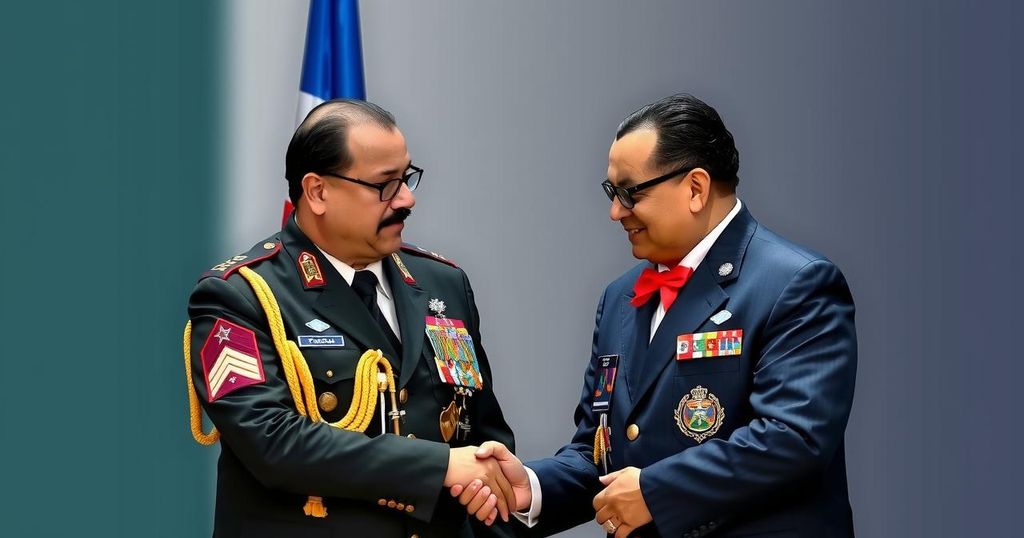Costa Rica Honors President Bukele for Crime Reduction Efforts Amid Controversy

Costa Rica awarded President Nayib Bukele of El Salvador with its highest diplomatic honor for his efforts to substantially reduce violence from street gangs. President Rodrigo Chaves recognized Bukele’s controversial measures amidst escalating crime in Costa Rica, emphasizing the need for regional cooperation against organized crime. Bukele defended his methods by highlighting the prioritization of the right to life as essential to ensuring other civil rights.
On Monday, Costa Rica honored El Salvador’s President Nayib Bukele with its highest diplomatic accolade, the National Order of Juan Mora Fernández, recognizing his significant efforts to reduce violence stemming from gang activity over the past two years. This commendation comes amid Costa Rica’s own struggles with historically high homicide rates attributed to rising drug trafficking issues. President Rodrigo Chaves praised Bukele’s initiatives while addressing the tensions that surround those approaches, which have involved suspending certain constitutional rights to empower law enforcement agencies. Despite the controversy, Bukele has gained substantial public support, achieving a second term in office due to his popularity. Observing violent crime rates that reached alarming levels in Costa Rica, Chaves emphasized the importance of cooperation against organized crime across Central America. Both leaders were set to visit a significant prison facility, marking a symbolic gesture in their joint efforts to combat crime. Bukele articulated a principled stance on maintaining public safety as a prerequisite to upholding other rights, asserting that without life, all other freedoms lose meaning.
The article illustrates the diplomatic relationship between Costa Rica and El Salvador, showcasing the recognition of President Bukele’s anti-violence measures amidst a backdrop of increasing crime in Central America. It highlights the contrasting political landscapes of the two nations, particularly the differing approaches to governance and security, which have become focal points in light of rising violence due to drug trafficking. Furthermore, the context includes the importance of law enforcement methods and their implications for civil liberties, while acknowledging Bukele’s controversial methods that have garnered public support despite lack of due process.
In conclusion, Costa Rica’s recognition of El Salvador’s President Bukele reflects a diplomatic acknowledgment of his administration’s efforts in crime reduction, albeit amidst rising concerns about civil liberties. While both leaders share a commitment to combatting organized crime, the contrasting circumstances of their administrations underscore the complexities that shape the political landscape in Central America, particularly in the fight against violence and drug trafficking.
Original Source: abcnews.go.com







